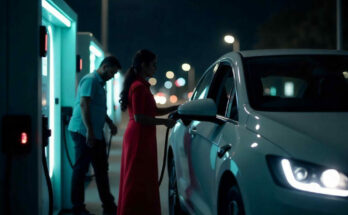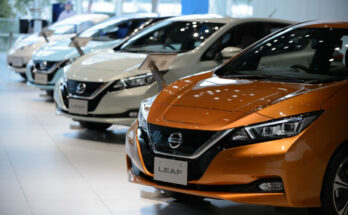As Pakistan grapples with an economic downturn, rising electricity costs, and dwindling car sales, the introduction of expensive electric vehicles (EVs) faces significant hurdles. With prices exceeding Rs 1 crore, these luxury EVs are largely inaccessible to the average consumer. Coupled with the country’s high electricity rates and unreliable power supply, the widespread adoption of EVs seems limited.
The future of expensive EVs in Pakistan faces significant challenges due to several interconnected factors:
Economic Crisis and Declining Car Sales
Pakistan’s economy has struggled with high inflation, increasing fuel costs, and devaluation of the rupee, which have drastically reduced purchasing power. Car sales have dropped by over 50%, with even affordable sedans and hatchbacks becoming inaccessible to a large portion of the population. In this context, EVs priced well above Rs 1 crore are out of reach for the majority and cater mainly to elites.
High Electricity Costs
The cost of electricity in Pakistan is rising rapidly, making the operation of EVs less economically viable. While EVs may save on fuel costs, the high electricity rates diminish this advantage. This increases the total cost of ownership, which would likely limit EV adoption to wealthier segments of society.
Electricity Availability
Pakistan faces chronic issues with electricity shortages and load-shedding, raising questions about the reliability of charging infrastructure. Even in major cities, the availability of 24/7 electricity is uncertain, which could deter middle-class buyers from investing in EVs if they fear frequent charging disruptions.
Infrastructure Development
The current infrastructure for EV charging is insufficient, with only a handful of charging stations available across major cities. Without government-backed initiatives to build a robust and widespread EV charging network, the adoption of EVs will be slow, and their use will remain concentrated among those who can afford private charging setups at home.
Elite-Driven Optics
The introduction of luxury EVs, such as those priced over Rs 1 crore, seems to be primarily for optics and to project an image of technological progress. These vehicles are likely targeted at the wealthy elite, including businesses and individuals looking for status symbols, rather than practical transport solutions for the wider population.
Environmental Considerations
While EVs offer environmental benefits in terms of reducing carbon emissions, their effectiveness in Pakistan is limited by the fact that the majority of the country’s electricity still comes from non-renewable sources like coal and gas. Without a shift toward cleaner energy, the environmental impact of EVs remains questionable.
Related: Are Electric Cars Viable for Pakistani Consumers?
In conclusion, the introduction of expensive EVs in Pakistan is currently geared toward the wealthy and appears more symbolic than a practical solution for the masses. Given the economic conditions, high costs, and electricity issues, EVs will likely remain an elite luxury unless significant strides are made in energy reform, infrastructure development, and the introduction of affordable EV options.

I don’t eat, sleep or dream of cars, I am just someone who loves to see, think & write about cars. I love Ferrari in Pink but they won’t make one for me. I use X to write my full name, but that doesn’t mean I’m inspired by Altis X, in fact, my dad hates it 😀 Btw I’m an occasional writer so don’t expect too much from me 🙂




